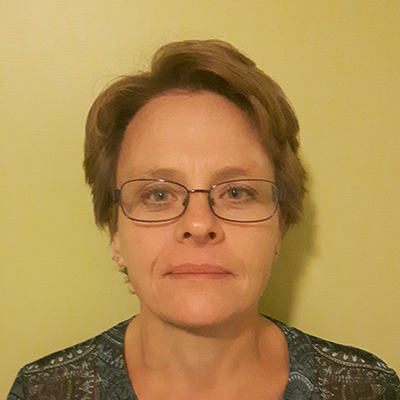Emcees
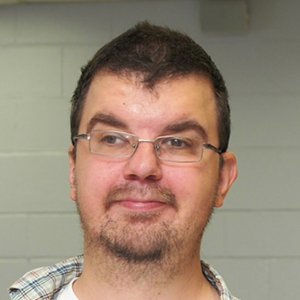 Daniel Beimers
Read More
Daniel Beimers
Read More
Daniel has been a member of New Vision Advocates (NVA) for the past 5 years. Daniel is a strong advocate for people with developmental disabilities and an experienced speaker and presenter, speaking at conferences and within our community to educate others about the issues important to people with developmental disabilities.In 2013, Daniel was the recipient of the Queens’ Diamond Jubilee metal for his dedication to advocating for people with developmental disabilities. Daniel currently works as a crossing guard in his home town of Strathroy.
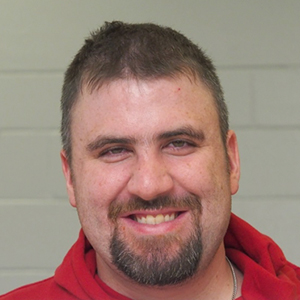 David Hill
Read More
David Hill
Read More
David has been a member of New Vision Advocates (NVA) for the past 6 years. He is currently the co chair of the group, elected by the members last November. David is an active speaker and presenter, giving presentations to DSW students at Fanshawe College and at the OADD and CLO conferences. He is also a member of Community Living London’s Advocacy Committee and sits on the Board of Community Living London. Along with being an active member of NVA, David is also a Special Olympic athlete and long-time volunteer at the Glendale nursing home and works at Windsor Factory supply in London.
Plenary Speakers
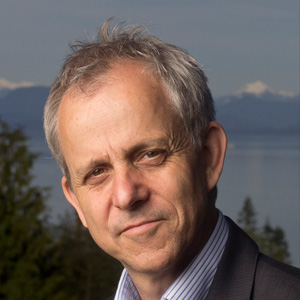 Michael Bach Phd
Michael Bach Phd
Managing Director,
IRIS – Institute for Research and Development on Inclusion and Society
Adjunct Professor, Disability Studies
Ryerson University
Toronto, Ontario, Canada
Read More
Michael Bach is Managing Director of IRIS – Institute for Research and Development on Inclusion and Society, and Adjunct Professor in Disability Studies at Ryerson University. For the past 30 years, he has undertaken research and development in Canada and internationally on ways to advance the full inclusion and human rights of persons with intellectual disabilities. His publications cover disability theory, policy and practice in a range of areas including legal capacity, education, employment, and individualized funding and delivery of community-based supports. He has recently completed an Open Society Foundations Fellowship, which continued his international comparative research on the right to legal capacity for people with significant intellectual disabilities.
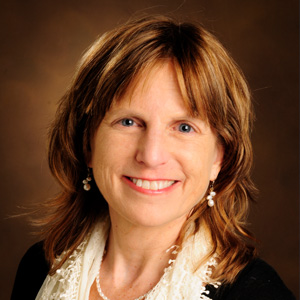 Elisabeth Dykens PhD
Elisabeth Dykens PhD
Annette Schaffer Eskind Chair
Director, Vanderbilt Kennedy Center
Professor, Psychology and Human Development, Psychiatry, and Pediatrics
Nashville, Tennessee, USA
Read More
Elisabeth Dykens, Ph.D., is Director of the Vanderbilt Kennedy Center for Research on Human Development, a Eunice Kennedy Shriver Intellectual and Developmental Disabilities Research Center; and she is Co-Director of the Vanderbilt Kennedy Center for Excellence in Developmental Disabilities. She is Annette Schaffer Eskind Chair and Professor of Psychology, Psychiatry, and Pediatrics at Vanderbilt University.
Dr. Dykens received a Ph.D. in clinical psychology from the University of Kansas. She completed a predoctoral internship and a postdoctoral fellowship at Yale University’s School of Medicine, Child Study Center. She served on the junior faculty at the Yale Child Study Center for seven years. In 1995, she joined the faculty of University of California Los Angeles where she was Associate Professor and then Professor-in-Residence at the Neuropsychiatric Institute, and Associate Director for Research and Training at UCLA’s Tarjan Center for Excellence on Developmental Disabilities. She directed the UCLA Lili Claire Family Resource Center and was Co-Director of out-patient clinics for persons with both intellectual disabilities and mental health concerns. She joined the Vanderbilt University faculty in 2003.
Dr. Dykens’s research examines psychopathology and areas of strength in persons with intellectual and developmental disabilities, especially those with genetic syndromes. Her studies focus on the development and correlates of psychopathology and behavioral problems in Prader-Willi syndrome, Williams syndrome, and Down syndrome. These include marked obsessive-compulsive behaviors in Prader-Willi syndrome, heightened anxiety in Williams syndrome, and increased withdrawal and depression in Down syndrome. Dykens also examines profiles of neurocognitive and adaptive strengths and weaknesses in these disorders, and how these unusual profiles refine treatment and shed light on typical development. A related area of research is stress, coping, and positive outcomes in families of persons with developmental disabilities.
Plenary Panelists
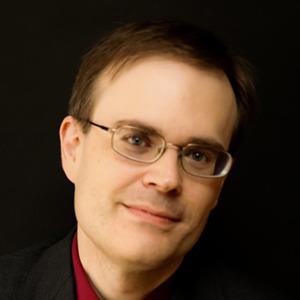 William Cutbush
Read More
William Cutbush
Read More
William Cutbush has been with the Ombudsman’s Office since 2008. Beginning his career as an Early Resolution Officer, he became an Investigator in 2010, and moved to the Special Ombudsman Response Team since 2012. He has participated in investigations into the adequacy of the HNHB LHIN’s community engagement, the use of force in the corrections system, and the de-escalation training of Ontario police services. He was the lead investigator on the investigation of MCSS’ provision of developmental services to adults with developmental disabilities in situations of crisis. In 2017, William moved into an acting role as Manager of Investigations.
In 2004, William attended law school at the University of Toronto, where he was also worked with the Journal of Law and Equality, becoming Editor in Chief in 2006. Prior to attending law school, William taught courses at the University of Toronto and McMaster University on World Religions, Indian Buddhism, and Sanskrit Literature while attending graduate programs in the academic study of religion at McMaster University, specializing in medieval Sanskrit literature.
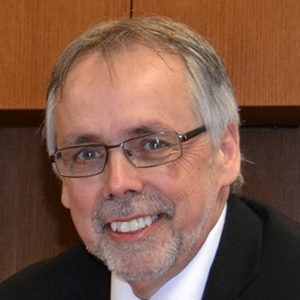 Wade Durling
Read More
Wade Durling
Read More
Wade Durling has worked in the Developmental Services (DS) Sector for most of his career in Nova Scotia, PEI, and Ontario. He is currently the CEO at Ongwanada in Kingston and has held 2 other roles in Ontario: COO at Bethesda in Niagara and Executive Director of Cochrane Temiskaming Resource Centre in Timmins. He is a graduate of Acadia University in Science and Education and has additional courses from UPEI in business and conflict resolution studies. He completed a Long Term Care Management Certificate through the Canadian Healthcare Association and most recently completed a one-week Senior Executive Level training program at the Ivey School of Business through the Community Shift Program.
Mr. Durling has additional training in administration, human resources, data management, and individual and other planning and assessment techniques, non-aversive and behavioral approaches and supports and crisis intervention.
He is active provincially in the DS sector including participation on the Provincial Network, OADD, Great Lakes Society, and with provincial committees including the Provincial HR Committee, Quality Assurance Measures, Performance Measurement Framework, and the Transformation Strategy Steering Committee.
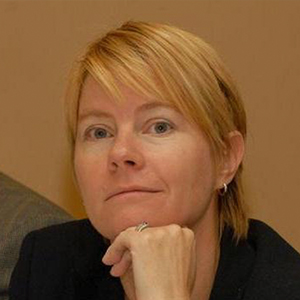 Barbara Simmons
Read More
Barbara Simmons
Read More
Barb Simmons is currently the Director of the Community and Developmental Services Branch, Social Policy Development Division, Ministry of Community and Social Services, responsible for policy and program design for developmental services, violence against women programming and indigenous healing and wellness initiatives.
Barb has over 20 years of experience in the Ontario Public Service, and has held a variety of jobs related to training and employment, including stints at Cabinet Office as Senior Policy Advisor for Education and Training, as Director of the Apprenticeship Reform Project, and held several executive positions at the Ministry of Training, Colleges and Universities (now called Advanced Education and Skills Development). She’s most proud of her stint as the Director of Program Integration with the Transition Management Office, where she played a key role in the successful transfer of over 500 staff and $525M of federal training and employment programs to Ontario.
Barb has a degree in Fine Arts from York University, is married to Alison, and has two children, Annie and Alec, with whom she never gets to spend enough time.
Faculty Disclosure
It is the policy of University of Toronto, Faculty of Medicine, Continuing Professional Development to ensure balance, independence, objectivity, and scientific rigor in all its individually accredited or jointly accredited educational programs. Speakers and/or planning committee members, participating in University of Toronto accredited programs, are expected to disclose to the program audience any real or apparent conflict(s) of interest that may have a direct bearing on the subject matter of the continuing education program. This pertains to relationships within the last FIVE (5) years with pharmaceutical companies, biomedical device manufacturers, or other corporations whose products or services are related to the subject matter of the presentation topic. The intent of this policy is not to prevent a speaker with a potential conflict of interest from making a presentation. It is merely intended that any potential conflict should be identified openly so that the listeners may form their own judgments about the presentation with the full disclosure of facts. It remains for the audience to determine whether the speaker’s outside interests may reflect a possible bias in either the exposition or the conclusions presented.


 Michael Bach Phd
Michael Bach Phd Elisabeth Dykens PhD
Elisabeth Dykens PhD
